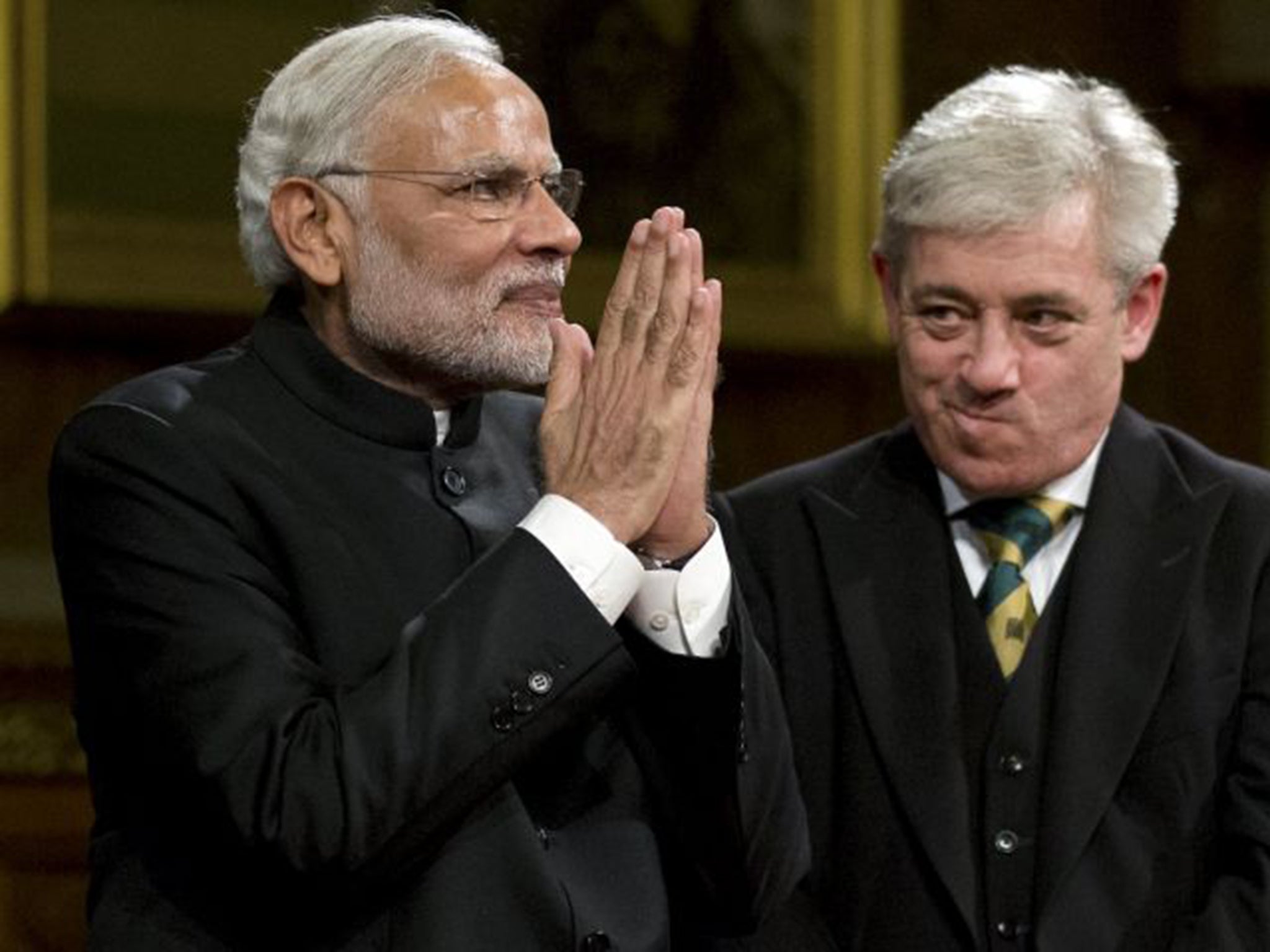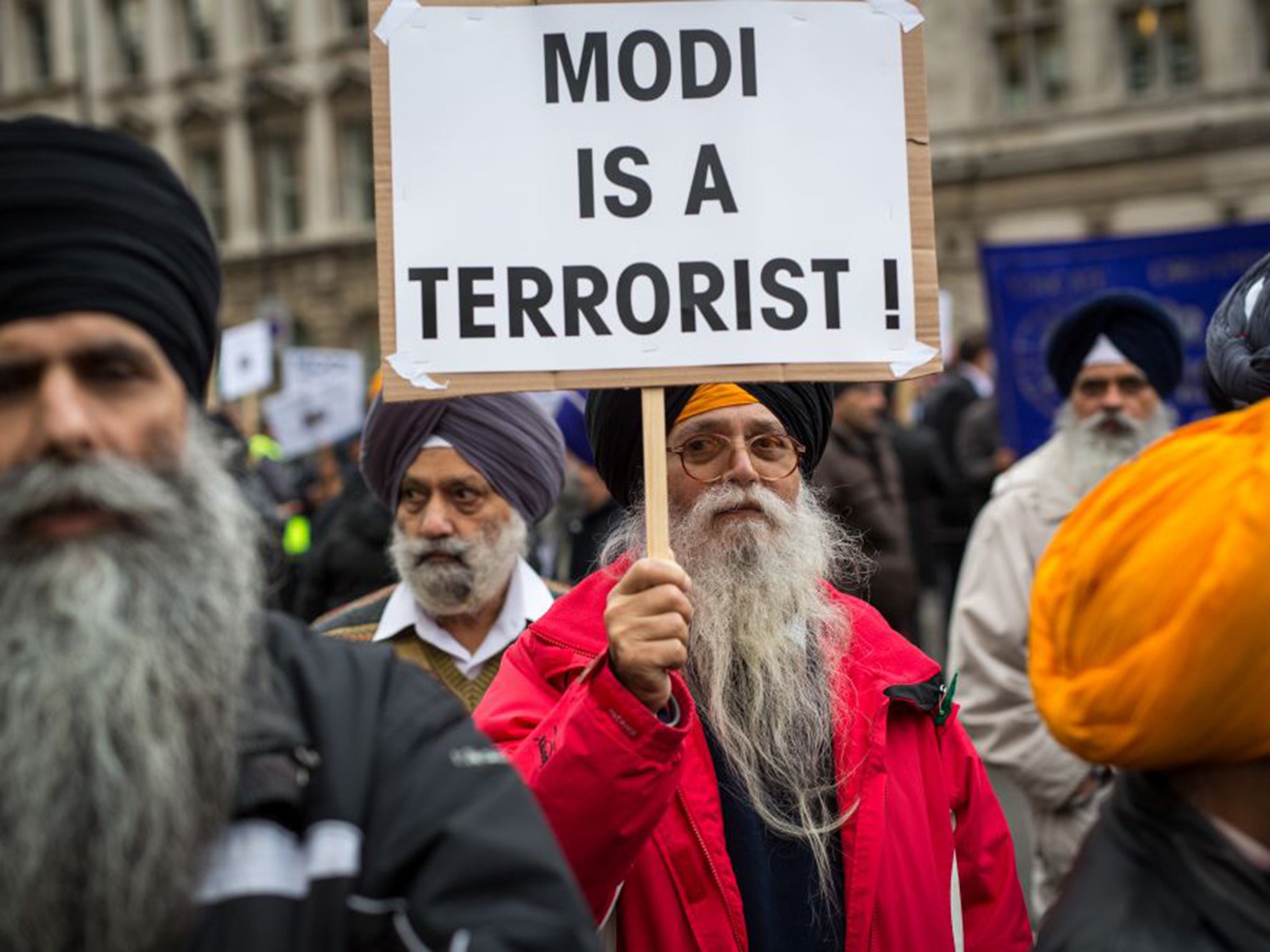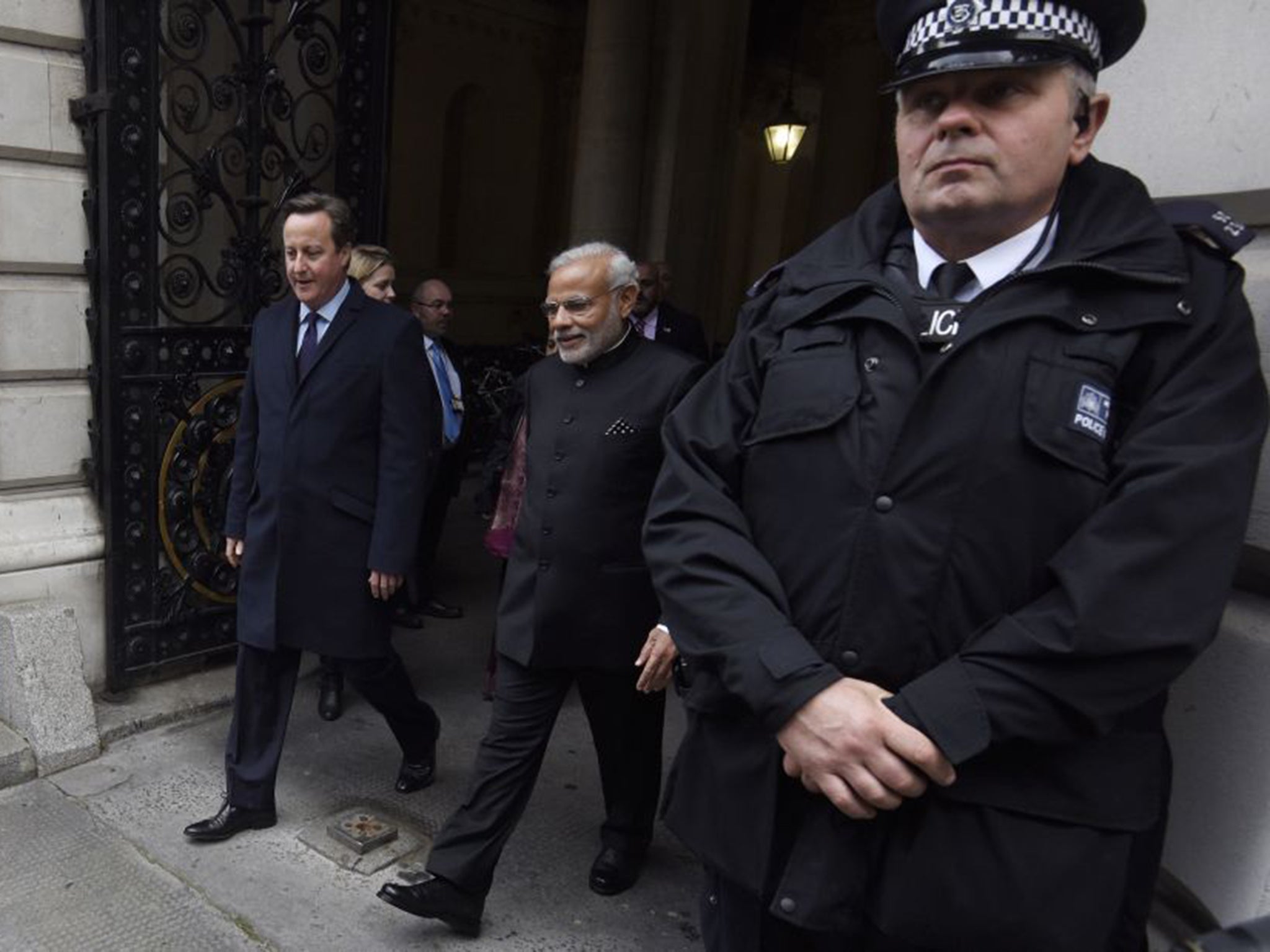Narendra Modi denies having been barred from UK and says he didn't visit due to 'time constraints'
From 2002 to 2012, the British government had a policy of 'non-engagement' with Modi and the Gujarat government

Your support helps us to tell the story
From reproductive rights to climate change to Big Tech, The Independent is on the ground when the story is developing. Whether it's investigating the financials of Elon Musk's pro-Trump PAC or producing our latest documentary, 'The A Word', which shines a light on the American women fighting for reproductive rights, we know how important it is to parse out the facts from the messaging.
At such a critical moment in US history, we need reporters on the ground. Your donation allows us to keep sending journalists to speak to both sides of the story.
The Independent is trusted by Americans across the entire political spectrum. And unlike many other quality news outlets, we choose not to lock Americans out of our reporting and analysis with paywalls. We believe quality journalism should be available to everyone, paid for by those who can afford it.
Your support makes all the difference.Narendra Modi can expect a reception tomorrow night the like of which may never have been enjoyed by a foreign leader in the UK.
Even the President of the United States could not realistically draw a crowd of 55,000 to Wembley Stadium, but that is where India’s Prime Minister will be speaking at five o’clock on Friday afternoon. The organisers expect a full house.
This is not altogether surprising, because there are about 1.5 million people of Indian descent in the UK, almost half from Modi’s home state of Gujarat – but it is a dramatic turnabout in the fortunes of a man who was non grata in the UK for 10 years.
In 2002, more than 1,000 people died in religious riots in Gujarat. Modi, who was then the state’s Chief Minister, was accused of either inciting or failing to control Hindus mobs as they attacked Muslims. From 2002 to 2012, the British government had a policy of “non-engagement” with Modi and the Gujarat government.
But to listen to Modi’s response to a question, as he stood alongside David Cameron yesterday at a press conference in the Foreign Office’s magnificent Locarno Suite, you would think that he could have come to the UK any time he had wanted to: he just did not have the time. “I came here in 2003, and had been warmly welcomed at that time,” he said, through an interpreter. “The UK has never stopped me from coming here. Perhaps I could not come because of my own time constraints, so please do correct this wrong perception you may have.”
He denied the implication that he was a Hindu chauvinist. “India is a land of Gandhi and therefore there is something that is deeply entrenched in our culture, our traditions, which is that we are not accepting anything that is having to do with intolerance,” he said.
That was not a view shared by the demonstrators in Parliament Square, holding banners accusing Modi of religious persecution. Their noise was drowned only once, by an ear-shattering fly-past by the Red Arrows. Modi may have more fans here than many a rock star, but he also has critics and people who might wish him harm.

The security was tighter even than during last month’s state visit by China’s President Xi Jinping. Roads around Westminster, including Whitehall, were closed off, helicopters circled, and police marksmen were stationed on Parliament’s roof.
I came here in 2003, and had been warmly welcomed at that time. The UK has never stopped me from coming here
Cameron was keen to forget past differences with the man whose Bharatiya Janata Party won a sensational election victory in May last year. Having visited India three times since he came to power, the British PM was only too glad that India’s leader had at last reciprocated, given the vast potential market in India for British exporters. “It is time to set this relationship free from these misconceptions and from the past,” he declared.
By Downing Street’s calculations, more than £9bn worth of commercial deals have been agreed during the visit, creating or protecting 1,900 British jobs. The first Madame Tussauds on the sub-continent will open in New Delhi in 2017, and the health food chain, Holland & Barrett, will open 1,000 shops in India over the next five years.

“As the largest G20 investor in India, British businesses already support nearly 700,000 jobs in India and India invests more in the UK than in the rest of the EU combined,” Cameron said.
After the press conference, Modi became the first Indian leader to make a speech in Parliament, when he addressed MPs, peers and members of the Indian community in the Royal Gallery in the Lords. He forecast that economic relations with Britain would grow by “leaps and bounds”.
Join our commenting forum
Join thought-provoking conversations, follow other Independent readers and see their replies
Comments